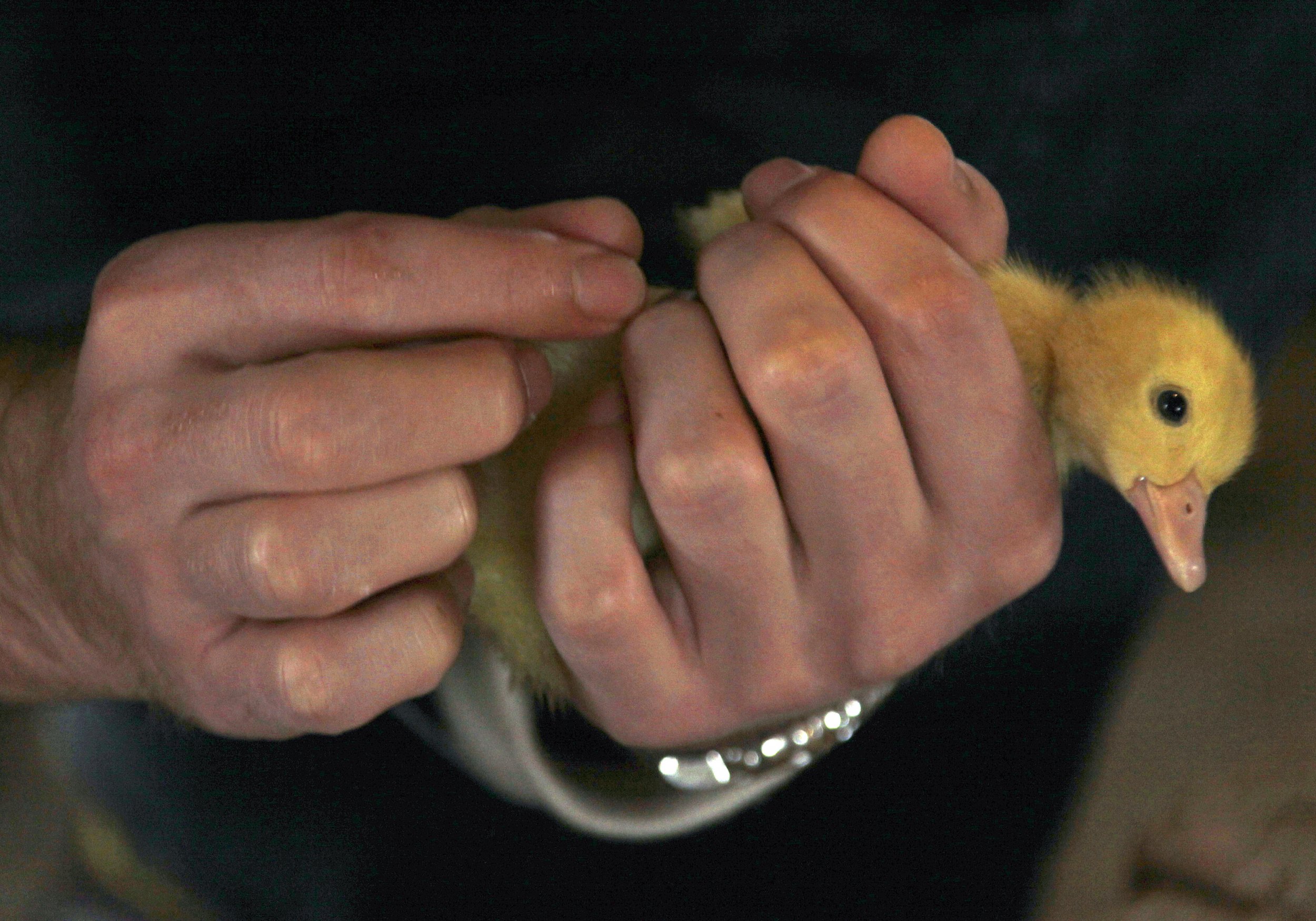
Members of the European Parliament are treating themselves today with a three-course Christmas feast of lobster, pheasant and most controversially, foie gras. The meal is heavily subsidized by EU taxpayers, with the legislators paying just £16 a head.
Foie gras, French for 'fatty liver', considered a delicacy by many, is the diseased and enlarged liver of a duck or goose, produced through force-feeding.
Two to three times a day, a thick metal tube is shoved down the birds throat, pumping pounds of maize mixture into the duck's stomach, causing it to swell up to ten times its normal weight to make its liver fatty, and delicious.
According Mark Porter, who recently visited a French foie gras farms as part of an investigation for Newsweek, the procedure is repeated each day for about 13 days until the bird's stomach explodes under the pressure, killing the animal.
"I went into the farm with an open mind, but what I saw shocked and horrified me - it was barbaric," he says. "The industrial process is a disgrace, not just to France but to anyone eating it. The MEPs should be aware of how it is made, and if they aren't they shouldn't be MEPs."
95% of foie gras comes from major producers such as the one visited by Porter. Many of these fall short of EU standards by keeping birds in individual cages. France has been granted special license by the EU to bring its foie gras producers in line, but little progress seems to have been made.
Even in foie gras production that meets EU guidelines, only male ducks can be used, meaning that female ducklings as viewed as surplus to requirements. Activists say that as many as 40 million female ducklings are thrown, live, into industrial grinders in order to be turned into pet food and fertilizers. The video below was filmed on a foie gras farm in Landes, France, by activist group L214.
Animal rights group Peta have written a letter to the president of the European Commission demanding that the product be removed from the parliamentary restaurant's menu.
A spokesperson for Peta said: "The scientific consensus on force-feeding is crystal clear: it's cruel and should be banned. Every animal-protection organisation in the world condemns the production of foie gras. The EU Scientific Committee on Animal Health and Animal Welfare has catalogued a long list of ways in which foie gras production is inherently abusive."
"Given the fact that ramming metal pipes down birds' throats in order to force-feed them huge amounts of grain to induce a swollen and diseased liver would be illegal in most EU countries, it's an outrage that this vile product would be served in the EU Parliament, so we are urging MEPs to refuse to dine in the Parliament restaurant until foie gras is removed from the menu."
According to the investigation into foie gras production carried out by the European Union's Scientific Committee, most ducks die a slow, painful and premature death. This occurs as either their stomach explodes, they choke on their own blood as their oesophagus bursts under pressure, or they suffocate from inhalation of the feed.
Committee member Dr Dennis J Alexander concluded from the report that "the only recommendation that the committee can properly make is that force feeding of ducks and geese should stop and that this could best be achieved by the prohibition of the production, importation, distribution and sale of foie gras".
Uncommon Knowledge
Newsweek is committed to challenging conventional wisdom and finding connections in the search for common ground.
Newsweek is committed to challenging conventional wisdom and finding connections in the search for common ground.





